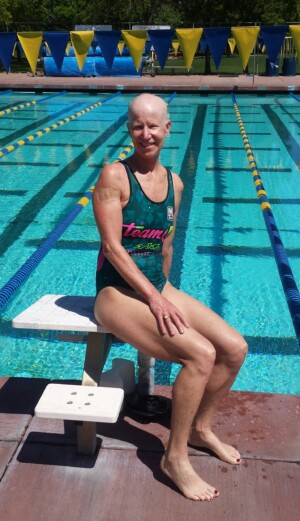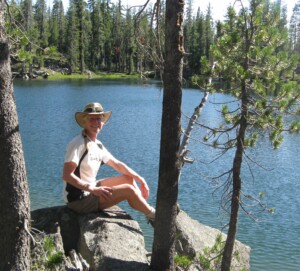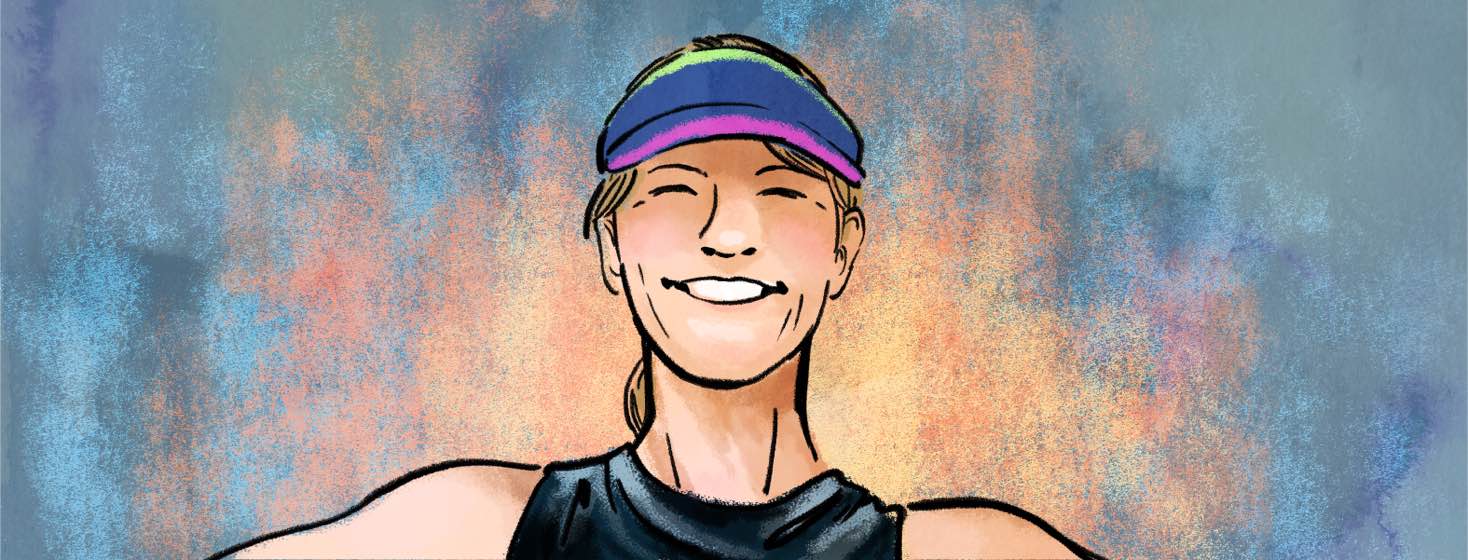Community Member Spotlight: Linda Curtis
Editor’s Note: This guest post was written by Linda Curtis, who shares her experience of being diagnosed with metastatic melanoma as a young adult. She talks about her skin cancer treatment journey and how she learned to cope after having several recurrences. Let's meet Linda!
Surviving metastatic melanoma as a young adult

My metastatic melanoma journey began as a young adult back in 1977 when I was a 20-year-old, carefree college student in Northern California. A friend, a nursing student at the time, noticed a rough-looking mole on my right arm, which I now know exhibited all the classic signs of melanoma. Skin cancer in those days wasn't exactly a topic of conversation, unlike today, and I was none the wiser.
A biopsy of the mole was “positive for metastatic melanoma,” and a very wide excision around the affected area was performed in July 1977. The wound was closed with a crude-looking skin graft, which for me was harder to accept than the fact that I had cancer. I felt damaged! I also believed it was one and done. Little did I know the path that laid before me.
Recurrence at 24
Four years later, a routine chest x-ray revealed a large mass in my right lung. Melanoma! I was fortunate to be introduced to a young surgeon who was willing to take on my case whereas other physicians were suggesting “I get my affairs in order.” I was only 24 and newly married.
My lobectomy in August 1981, was my second melanoma surgery in a succession of several others. I had 2 inches of intestines removed in 1983 and my left ovary in 1984, and a tumor on my pancreas in 1985. The most frightening surgery was when I was 3 months pregnant with my daughter. A melanoma tumor was removed from my abdomen, and thankfully my daughter was born 6 months later-- healthy!
In the mid-'70s there was no Internet- no information at your fingertips. The information I received about melanoma was from my treating physicians. Looking back, this may have been a blessing. Forty-four years ago treatment for melanoma consisted of a skilled surgeon, a scalpel, and a prayer. Today, with medical advances, melanoma patients have many more treatment options.
After 25 years of being cancer-free

In 2010, after 25 years of being cancer-free, a suspicious mole on my shoulder revealed melanoma. During the following 5 years, several melanomas, basal cell, and squamous cell carcinomas were removed from my back, leg, and face. In 2016, a suspicious bump on my head, about the size of a large mosquito bite was biopsied: desmoplastic melanoma. I underwent 3 surgeries and 20 sessions of radiation. A follow-up PET scan 6 months later showed I now had Non-Hodgkin's lymphoma, which required surgery, chemotherapy, and 12 rounds of radiation. In May 2017, another melanoma was found on my left leg. Needless to say, it was a whirlwind of 11 months of treatments!
During my remission phase, I started competing in triathlons, and I found out I was quite good at it, even with 60% of my right lung removed! I was my own coach and disciplinarian, and I didn't rely on technology or gadgets. I trained by my body's reaction and by feel. Since 2008, I've raced in many Olympic distance triathlons at the local, national, and world level.
Stronger than cancer
 Reflecting back, I always knew my melanoma was going to return someday. Call it a gut feeling versus being pessimistic. I've always expected the unexpected when dealing with skin cancer. That has just been my way of life for so long, and there is no longer an element of surprise when pathology results come in.
Reflecting back, I always knew my melanoma was going to return someday. Call it a gut feeling versus being pessimistic. I've always expected the unexpected when dealing with skin cancer. That has just been my way of life for so long, and there is no longer an element of surprise when pathology results come in.
On the upside, dealing with cancer has been a platform to learn patience, tolerance, and perseverance. I've learned to flex my strengths and identify my weaknesses. I've experienced many emotional rollercoasters over the years. But these cancers will not, and have not, divided and conquered my mind and body, in spite of all my scars.
A close friend of mine is a Health 101 instructor at a local junior college and twice a year I'm honored to be a guest speaker. I share with students my cancer story as well as teach them what I know about skin cancer. After I leave, each student is asked to write a summary of what they've learned. I've been surprised at the number of students who were unaware of the seriousness of skin cancer.
Coping with metastatic melanoma
Throughout the years, friends have asked, “How did you get through all this (and live to tell about it)?” Well, there is no magic pill, no magic wand. For me, it's been a positive mindset. Cancer isn't always a death sentence, but it can kill one's spirit. You have a choice to go down that rabbit hole and stay there or rise above. I've chosen the latter. Always. Strength doesn't come from winning. Your struggles develop your strengths. When you go through hardships and decide not to surrender, that's strength.
The feeling of hope for a cancer patient is huge, as is support. No matter the kind of cancer, coping with its emotional toll can continue long after treatment is over. It's all a tangle of complex feelings. Roll with it and FEAR: Face Everything And Rise!

Join the conversation